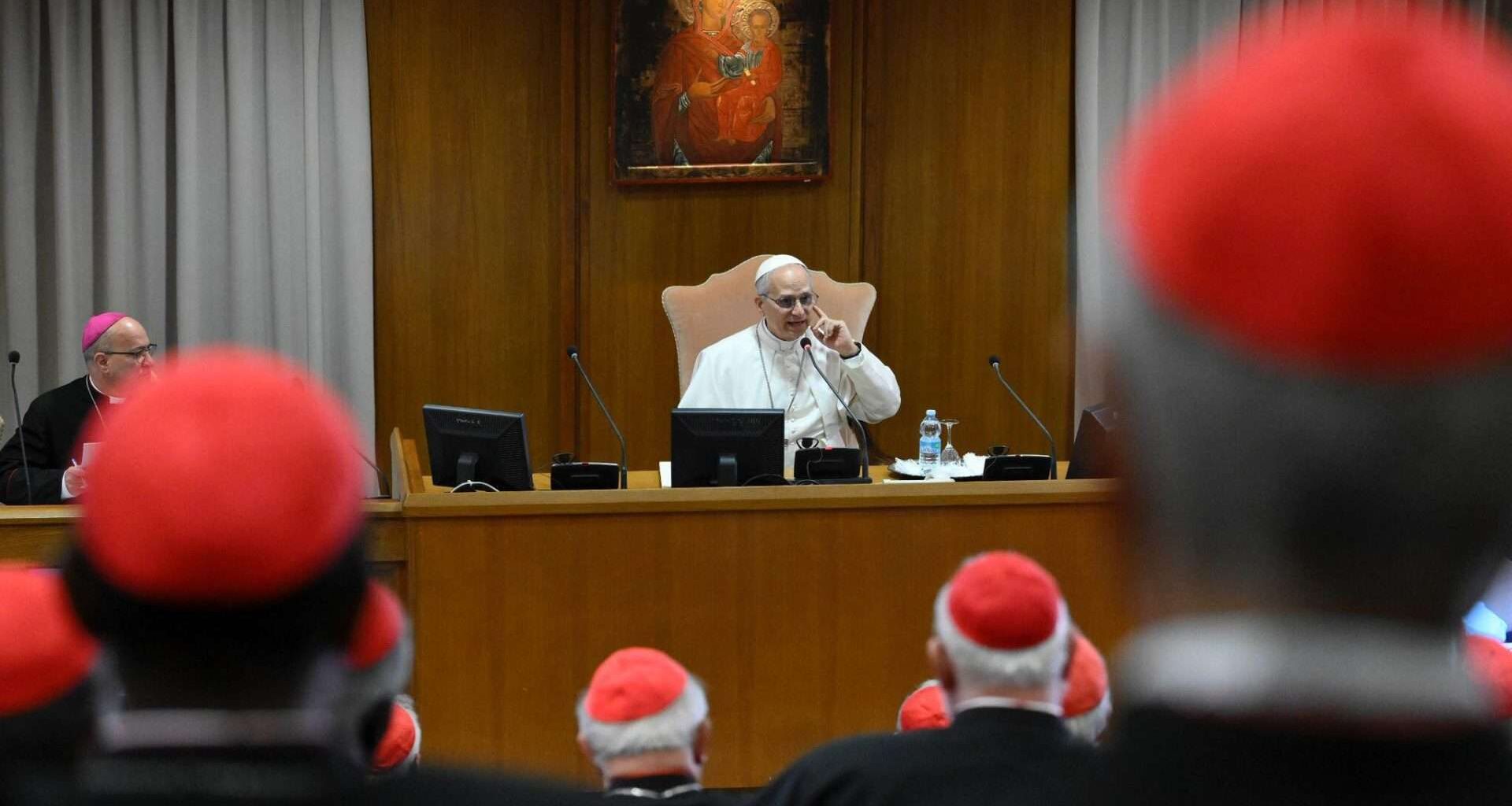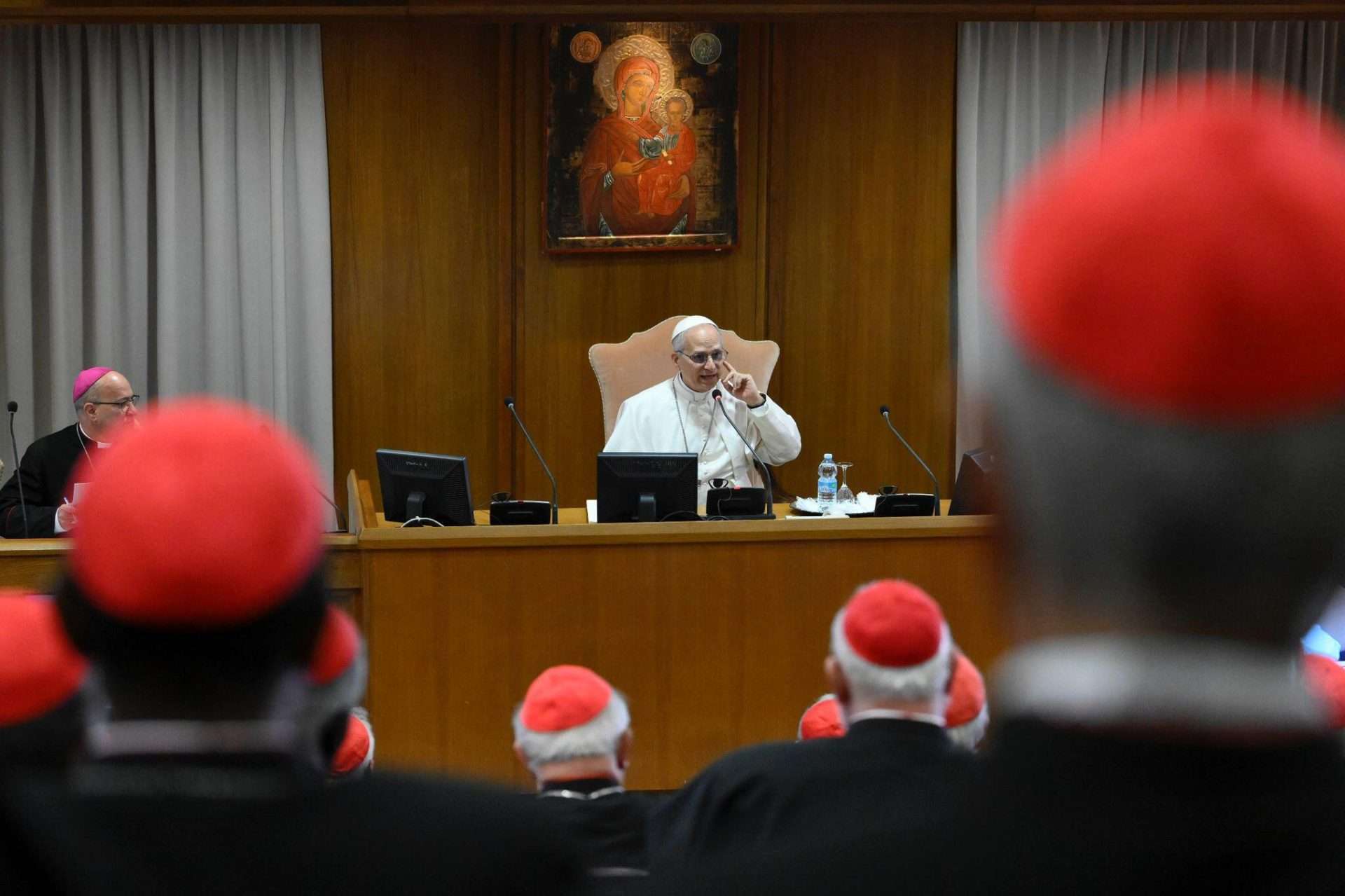Pope Leo will announce reforms to the Roman Curia in the autumn, Archbishop of Westminster Cardinal Vincent Nichols has predicted, saying that one of the reasons the Pope was elected was that he knew the Church’s administration from the inside. And according to the Cardinal, discussions among cardinals at the time of the Pope’s election in May focused on the continuing problems of the Curia.
Cardinal Nichols made his remarks after giving the St George’s House annual lecture in St George’s Chapel, Windsor last week. Addressing an invited audience, which included the Princess Royal, he talked about the need for hope, the place of religion in a secular society, and encouraging signs of young people’s growing interest in the Catholic faith – what he called “a response to the spiritual side of our human nature”.
But it was his answers to questions after his lecture that gripped the audience, particularly his remarks about his involvement in both the conclave that elected Pope Leo and with the film, Conclave, that was released shortly before the death of Pope Francis.
Cardinal Nichols, who was one of the 133 cardinal electors who chose Cardinal Robert Prevost to be the next Pope, said that the General Congregations held with both the cardinal electors and the cardinals too old to vote, highlighted the qualities they believed the next Pope needed – and Prevost clearly had them all.
They believed that the successor to the throne of Peter needed to evangelise – and Prevost was a member of a missionary order; he need intellectual ability – and Prevost was a scholar; that he needed to be aware of the world’s needs – and Prevost as leader of his own Augustinian order twice had travelled the world; that he was a pastoral leader – he had been bishop of a poor diocese; and he had curial experience – he had been prefect of the Dicastery for Bishops from 2023.
“I do think nobody else had all that experience”, he told the audience, “so that is why the voting [in the conclave] did not take long,” referring to Pope Leo being elected on the second day of the conclave and reaching the two thirds majority required for election on the fourth ballot. “A lot our discussion was about addressing the Curia”.
Vatican watchers will be keen to see whether Leo, in his own reforms, follows in the footsteps of Pope Francis, who was elected in 2013 with a clear mandate to reform the Curia. Nine years after taking office he released the apostolic constitution, Praedicate Evangelium, or Preach the Gospel, that replaced St. John Paul II’s 1988 constitution, Pastor Bonus and reorganised the Curia to highlight its role in promoting the church as a community of missionary disciples, sharing the Gospel and caring for all those in need.
Early signs are that Pope Leo is intending to continue the reforms of his predecessor who was keen to diversify the make-up of the Curia, ensuring it reflected the Church more strongly, by appointing representatives from across the globe, rather than just the West, and increasing the appointments of women.
In June during an audience with the staff of the Secretariat of State, Pope Leo said that it “has taken on an increasingly universal character and has grown considerably”. With nearly half of its employees lay people, of which more than 50 are women, “the Secretariat of State itself reflects the face of the Church,” he said, saying its task is to convey the Gospel through a variety of cultures and languages while maintaining “a Catholic, universal outlook that allows us to appreciate different cultures and sensibilities”.
“In this way, we can be a driving force committed to building communion between the Church of Rome and the local Churches, as well as friendly relationships in the international community,” Pope Leo said.
According to Cardinal Nichols, the movie Conclave, which was released towards the end of Pope Francis’ life, and was based on the novel of the same name by Robert Harris, was very accurate when it came to the routines of a conclave in the Sistine Chapel while the conflicts between cardinal electors, depicted in the film, were outlandish.
The star of the movie, Ralph Fiennes, who played Cardinal Thomas Lawrence, Dean of the College of Cardinals, and is himself the grand-nephew of another distinguished Catholic theologian Sebastian Moore, sought out the advice of Cardinal Nichols about how to act a senior prelate, such as use of the rubrics of the liturgy. Nichols said that Fiennes, who is the nephew of the late Catholic theologian, Nicholas Lash, was very keen to learn. “We spent about three hours together and I said to him, ‘do you want to try on the kit?’ so he did”.

